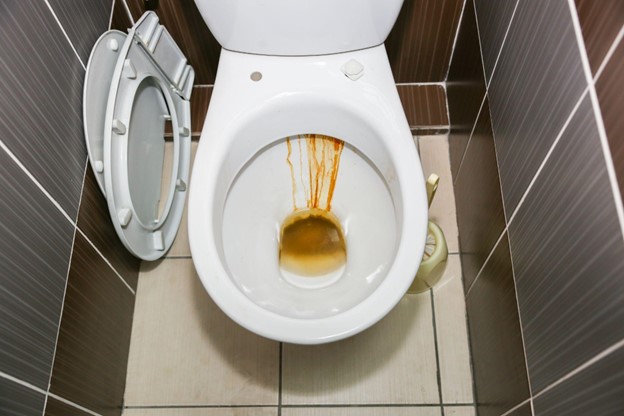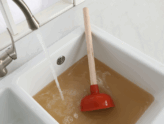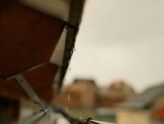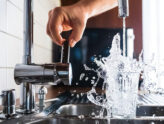Preventing Rust Stains In Your Toilet Bowl
Cleaning the bathroom is one of those household chores that seems to take far too long despite having every chemical and scrubbing device at your disposal. What makes it worse is having immovable stains that disrupt your crystal-clean bathroom.
Noticing rust stains in your toilet is horrible because you know that even if you’ve cleaned your whole bathroom from top to bottom, the rust stains will always make your toilet look dirty. However, there are ways you can restore your toilet to its former glory and give it an appearance you’re proud of.
Where Do Toilet Bowl Rust Stains Come From?
Before we discuss how to remove these stains, it’s important to get to the bottom of why they occur in the first place. Toilet bowl rust stains are the result of the build-up of minerals and iron in your fresh water supply.
If you live in an area with very hard water, you may have a high concentration of minerals and iron in your plumbing system which means rust stains are much more likely to appear on porcelain fittings in your home.
As toilet bowls are in frequent use and rarely have the opportunity to fully air dry, rust stains easily appear in streaks or in unappealing stains at the bottom of your toilet.
Rust stains typically form because of dissolved iron in your household water pipes that then oxides with the air when you flush your toilet, forming red rings under the toilet rim or streaks down the toilet. Unfortunately, minerals in your system like calcium, magnesium, lime scale and iron attach to your surfaces and are incredibly stubborn.
If you notice that these stains are very dark in colour, this is because the oxidizing minerals have spent a prolonged time exposed to oxygen, so it’s very important to clean your toilet regularly and keep your toilet bowl dry to stop minerals from building up and oxidizing.
How Do I Get Rid Of Toilet Rust Stains?
Now that you understand where toilet rust stains come from, let’s discuss how you can get rid of them with ease!
Vinegar And Water
Using distilled white vinegar and water is a great way to use non-harmful acids to clean your rust stains. Vinegar contains acetic acid which breaks down rust and, if used as part of your regular cleaning routine, can prevent rust stains from forming and becoming permanent on your toilet bowl.
It’s best to use cleaning-grade white vinegar to do this as food-grade vinegar may be too weak to fully remove these stains. To do this, you can either use a spray bottle with distilled white vinegar and water and spray directly onto the rust stain.
Alternatively, you can add two or three cups of white vinegar into the water and use your scouring toilet brush to scrub this into the stain.
If you have very mature stains, consider using a clean cup to remove the toilet water and spraying or dumping undiluted vinegar into the toilet and letting it sit for a few hours, or overnight. From there, you can scrub and flush the area with clean water and pat dry the surface.
Shaw’s Pads
Shaw’s pads are a great tool to use if you’re not interested in using any chemicals to clean the rust stains in your toilet bowl. Shaw’s pads consist of an abrasive scouring pad that’s perfect for lifting hard mineral stains from your toilet.
Shaw’s pads come with a handle, so you don’t need to get too up close and personal with your toilet bowl. With the absence of harsh chemicals, Shaw’s pads are an effective and environmentally friendly option that won’t damage your porcelain.
All you need to do to use this is to dip the scouring pad into the water and scrub gently at the stain until it begins to fade.
Borax Powder And Vinegar
A well-known and effective remedy for preventing and cleaning rust stains in your toilet is to use borax powder and vinegar.
As mentioned, vinegar contains acetic acid that reacts with the borax powder and creates a foaming cleaner that effectively lifts stains. To create an effective mixture, mix three parts borax powder and one part of vinegar until you create a paste-like consistency.
You can then spread this across the stain and leave the solution to sit on the stain for a few hours. Once you’re happy with the result, gently scrub the affected area until the stain fades. You can do this multiple times until you achieve the desired result.
Install A Water Softener For Preventative Solutions
Installing a water softener for your toilet water tanks is the best way to prevent rust stains in the long term. This is a good idea for hard water areas that are more likely to experience hard water stains in their porcelain fittings.
Water softeners work by using resin beads that carry a negative charge. As magnesium and calcium have positive charges, the water softener works on an ion-exchange basis and attracts magnesium, calcium and iron towards the resin, forcing them through the resin.
From this, the softener replaces this with sodium and potassium and softens the water. This is a relatively simple process that can make a big difference in how often you need to clean rust stains in your toilet.
Pumice Stick
A pumice stick is an effective tool to clean hard water and rust stains from your toilet as its surface is very rough and abrasive, making it ideal for scrubbing. However, it’s important to use this very gently on the stain to ensure that you don’t damage the porcelain.
One of the key benefits of using a pumice stick is, much like Shaw’s pads, you’re unlikely to use any harsh chemicals that may damage the porcelain or be toxic. The best way to use this tool is to soak the pumice stone for a few minutes in water and then use it to gently scrub away at the stain until hard mineral patches fall off.
It’s very important to ensure that the surface that you scrub is also wet to avoid damaging the porcelain.
Citric Acid And Salt
Salt and citric acid are effective stain removers for many things including rust and blood. The acid reacting with the sodium chloride effectively lifts and breaks down minerals like calcium, iron and magnesium, making it much easier to remove rust stains.
To remove the stain, create a mixture of salt and lime or lemon by sprinkling the salt over the rusted surface and squeezing the lemon or lime juice over the rust.
For optimal results, consider leaving this to sit for a few hours and then using an abrasive scrubbing tool to scrub away the mineral deposits.
For Plumbing Services In The Oshawa Area, Contact Caldwell Plumbing Today!
If you’re looking for a plumber in Oshawa that can help you manage the impact of hard water and rust stains, contact Caldwell Plumbing today.
Our experienced and professional plumbers are waiting to serve anyone in Oshawa that needs to get rid of those pesky rust stains with both short and long-term solutions. Our super-friendly customer service makes fixing your toilet a breeze, so contact us today to find out how we can help you!
















